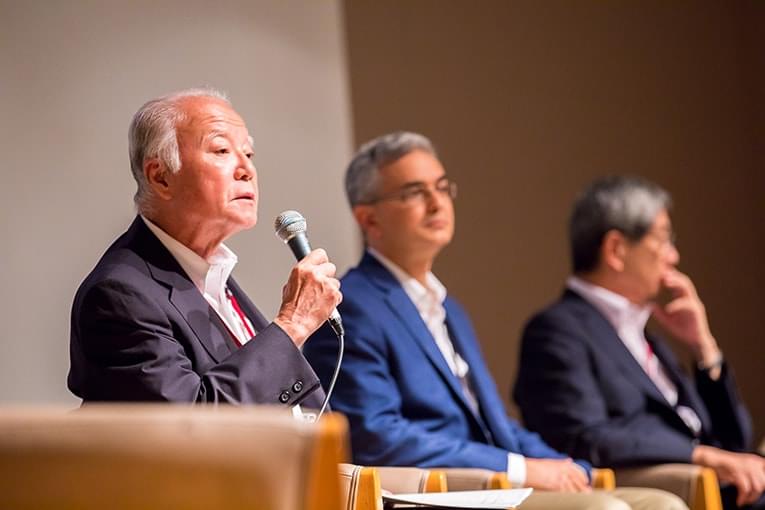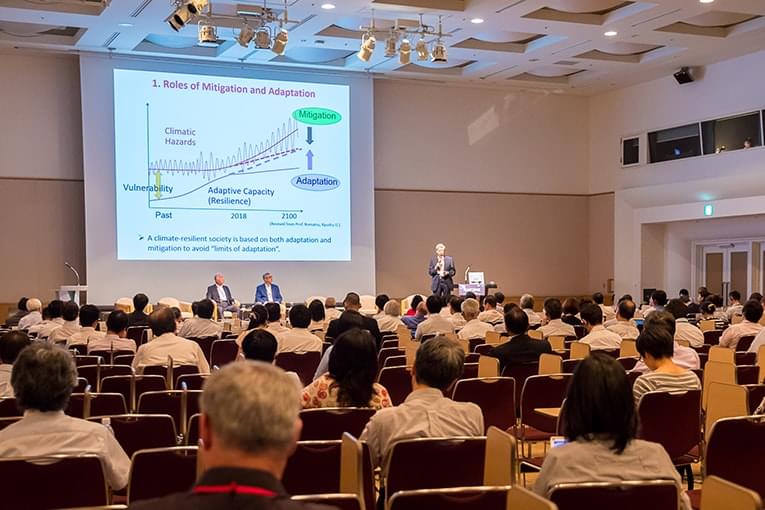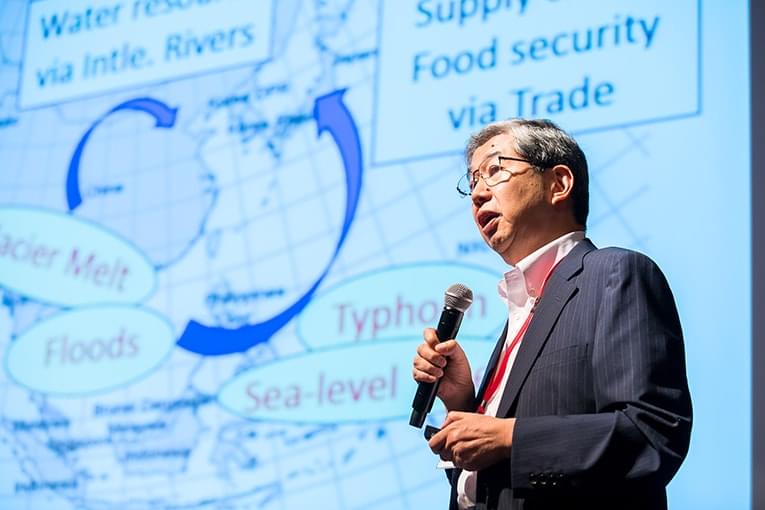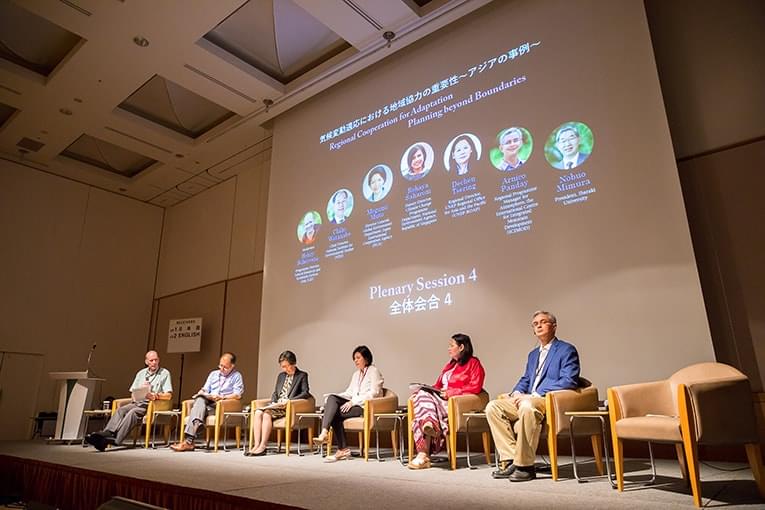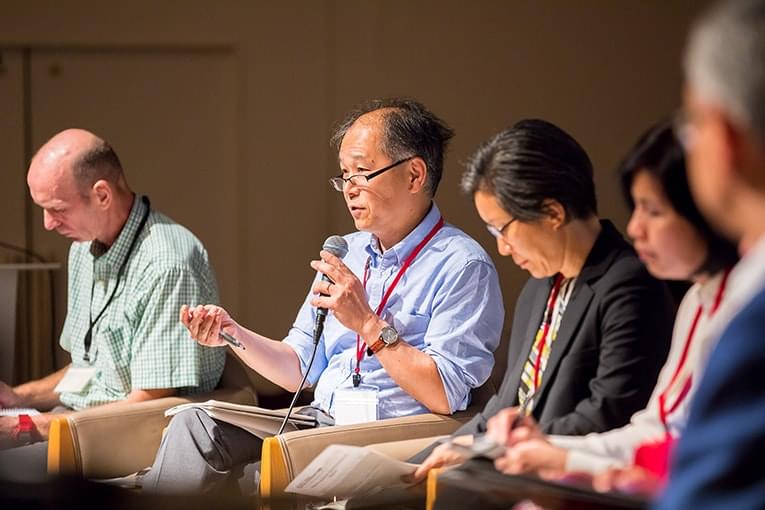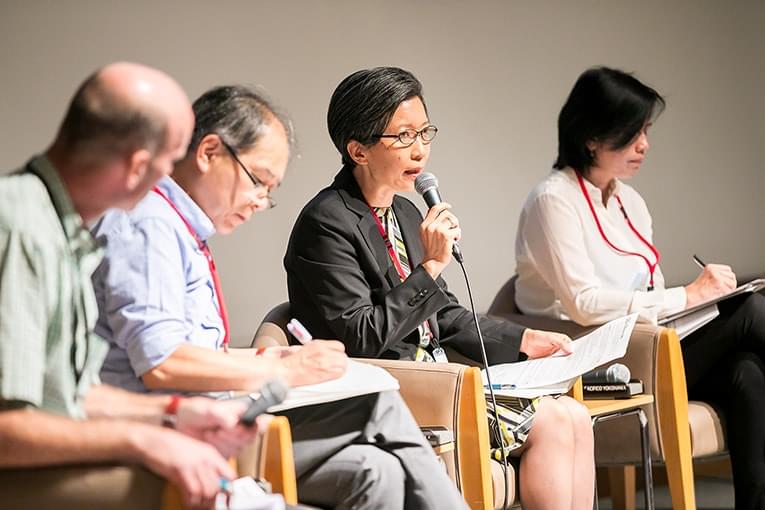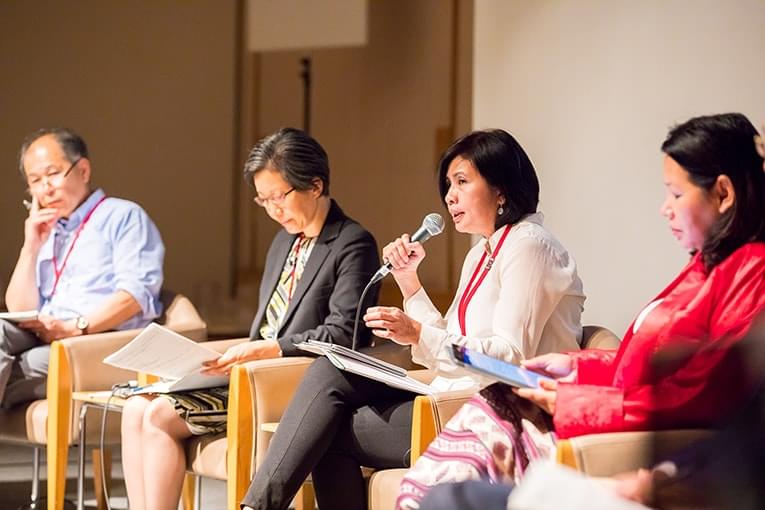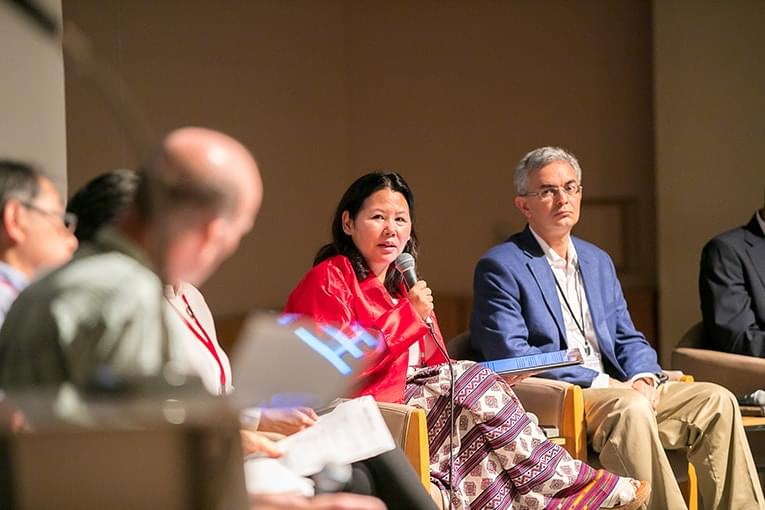Climate change impacts are being felt at the global, regional, national and local levels. South Asia and the Hindu Kush Himalayan (HKH) region, hosting a number of vulnerable population groups, continue to face transboundary impacts of climate change on shared natural resources, including water reserves from the Himalayas. Countries are addressing these challenges through their Nationally Determined Contributions (NDCs) and adaptation plans. However, national adaptation planning frameworks generally do not sufficiently address the regional implications of climate change, especially those pertaining to transboundary impacts. Promoting regional cooperation for adaptation planning will help tackle transboundary impacts of climate change as well as provide opportunities to use adaptation actions in such areas as resource mobilisation, knowledge transfer and strategic communication. Some regions in Asia, such as ASEAN, have done well in terms of regional risk reduction governance by utilising shared resources for the promotion of planning and implementation, including by initiating common approaches such as the creation of Working Groups for risk reduction, and establishing guidelines and tools for decision-making. In considering the importance of regional cooperation towards achieving the Global Adaptation Goal under the Paris Agreement, this plenary session will bring experiences from Japan, HKH, and ASEAN to discuss the role of various knowledge institutions and bilateral agencies in supporting cross-boundary adaptation planning and implementation for tackling mutual climate threats.
Regional Programme Manager for Atmosphere, the International Centre for Integrated Mountain Development (ICIMOD)

Arnico Panday
Regional Programme Manager for Atmosphere, the International Centre for Integrated Mountain Development (ICIMOD)
Arnico Panday is Regional Programme Manager for Atmosphere, at the International Centre for Integrated Mountain Development (ICIMOD), headquartered in Kathmandu, Nepal. He was born in Switzerland to a Swiss mother and a Nepali father, and grew up mostly in Nepal. He received a Bachelor’s in Environmental Science and Public Policy from Harvard University, a Master's in Land Resources from the University of Wisconsin-Madison, and a Doctor of Science in Atmospheric Science from the Massachusetts Institute of Technology (MIT). He conducted postdoctoral research at MIT and Princeton, and served on the faculty at the University of Virginia before joining ICIMOD to build up its Atmosphere Programme. His team addresses air pollution in the Hindukush Himalaya, including its science, impacts and mitigation.
President, Ibaraki University
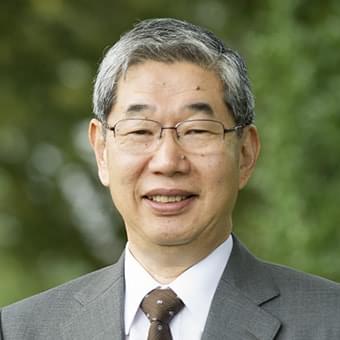
Nobuo Mimura
President, Ibaraki University
Nobuo Mimura graduated from the Faculty of Engineering of the University of Tokyo in 1974, and was granted a doctoral degree in urban engineering in 1979. He began his professional career as Research Associate at the University of Tokyo in 1979, where he started research in coastal engineering. Since then, he served as Associate Professor at the University of Tokyo, and Professor at Ibaraki University. He specializes in global environmental engineering and coastal engineering. He is intensively engaged in the study of climate change impact assessment and adaptation in Japan, Asia and small islands in the South Pacific. He also served as coordinating lead author of the Intergovernmental Panel on Climate Change (IPCC) and as an advisor to several ministries of Japan as well as international bodies such as the World Bank. He has been President of Ibaraki University since 2014.
President, IGES

Moderator
Kazuhiko Takeuchi
President, IGES
Kazuhiko Takeuchi graduated from the Department of Geography, the University of Tokyo in 1974. He obtained M.Agr. and Ph.D. from the Graduate School of Agriculture, the University of Tokyo. He served as a Professor at the Asian Natural Environmental Science Center, and as Professor at the Graduate School of Agricultural and Life Science at the University of Tokyo from 1997 to 2012. He also served as a Vice-Rector and Senior Vice-Rector at the United Nations University from 2008 to 2016. He has been Director and Professor/Project Professor of the Integrated Research System for Sustainability Science (IR3S) at the University of Tokyo since 2012. He took up the position as President, Institute for Global Environmental Strategies (IGES) in July 2017. He has served, inter alia, as a Vice-President of the Science Council of Japan, Chair of the Central Environmental Council, Government of Japan, and Editor-in-Chief of the journal Sustainability Science (Springer Nature).
He specialises in landscape ecology, landscape planning, and sustainability science.
Chief Director, National Institute for Environmental Studies (NIES)

Chiho Watanabe
Chief Director, National Institute for Environmental Studies (NIES)
Chiho Watanabe is Chief Director of the National Institute for Environmental Studies, National Institute for Environmental Studies (April, 2017), as well as Professor Emeritus of the University of Tokyo. His specialty fields are human ecology, environment and health, environmental toxicology. He holds a Doctor of Health Sciences (The University of Tokyo, 1991). His publications include "Sustainability challenges: Elucidating sustainability-health intersections" (co-edited, Current Opinion in Environmental Sustainability), "Human ecology" (co-edited by Asakura Shoten), "Science of toxicity" 2017, 25 Special Issue) etc. He has held positions including Vice Chairman of the Society of Human Ecology (2011-2017), and Chairman of the Japan Health Association (2017~).
Director General, Global Environment Department, Japan International Cooperation Agency (JICA)

Megumi Muto
Director General, Global Environment Department, Japan International Cooperation Agency (JICA)
Prior to her appointment as the Director General of the Global Environment Department in April 2018, Megumi Muto represented JICA at the OECD as the Chief Representative in France. Before transferring to Paris in October 2015, she was responsible for the Philippines and the Pacific.
She has written extensively in the area of impact evaluation for academic journals such as World Development and Journal of African Economies. She also co-authored books with the World Bank and/or the Asian Development Bank on the impact of climate change on Asian coastal mega cities and industrial clusters in Africa.
She holds a Ph.D. in development economics from GRIPS, MPA from Princeton University, EMBA from HEC Paris and BA from Keio University.
Deputy Director, Climate Change Programme Department, National Environment Agency, Republic of Singapore

Rohaya Saharom
Deputy Director, Climate Change Programme Department, National Environment Agency, Republic of Singapore
Rohaya Saharom has been working in the field of environmental protection and management for more than 25 years. She started her career with Singapore’s Ministry of the Environment (MEWR) in 1990 and joined the National Environment Agency (NEA) in 2002.
In her previous role as Deputy Director (Pollution Control Department) in NEA, she oversaw the implementation of pollution control programmes related to air and water quality, hazardous wastes and chemicals, vehicular emissions and construction noise, including issues related to environmental agreements to which Singapore is a Party.
In the Climate Change Programme Department she is currently involved in the development of operational framework and regulations for Carbon Tax implementation in Singapore which she will oversee when it commences in 2019.
Regionally, she has worked and collaborated with ASEAN counterparts in several ASEAN working groups on various regional issues related to transboundary haze, hazardous wastes and chemicals and climate change impacts.
She holds a B.Eng (Chemical) and a M.Sc. (Environmental Engineering) from the National University of Singapore.
Regional Director, UNEP Regional Office for Asia and the Pacific (UNEP-ROAP)

Dechen Tsering
Regional Director, UNEP Regional Office for Asia and the Pacific (UNEP-ROAP)
Dechen Tsering was appointed as the regional director of UN Environment in Asia and the Pacific in March 2017. As the regional arm of UN Environment, headquartered in Nairobi, Kenya, the Asia-Pacific office works with governments, local authorities and the private sector to develop and put into place cleaner and safer policies and strategies that encourage the efficient use of natural resources and reduce risks for humans and the environment.
Ms Tsering has held management and leadership positions with the United Nations and has over 25 years of experience in national government and intergovernmental organisations. She has been actively involved in intergovernmental negotiations as a key negotiator for least-developed countries and contributed to the establishment of the Least Developed Countries Fund and the Least Developed Countries Expert Group. She also has experience in the management of complex development projects.
She comes to UN Environment from the United Nations Framework Convention on Climate Change secretariat, where she served as director of the Finance, Technology and Capacity-building Programme. In that position, she supported international co-operation on mobilisation of finance, technology development and transfer, and capacity building to enable countries to take enhanced action on climate change. Prior to that position, she was the deputy regional director of UN Environment in Asia and the Pacific.
She holds a Ph.D. in forest economics and policy from the Federal Institute of Technology, Zurich. She also has a Master’s degree from Georgetown University and undergraduate degrees from the University of California, Berkeley.
Programme Director, Natural Resources and Ecosystem Services Area, IGES

Moderator
Henry Scheyvens
Programme Director, Natural Resources and Ecosystem Services Area, IGES
Henry Scheyvens holds a Ph.D. in Political Science from Monash University and a MPhil in Development Studies from Massey University. He has taught at several universities in New Zealand, Australia and Japan. He joined IGES in 2004, where he now serves as the Area Leader of the Natural Resources and Ecosystems Services Area. His research interests centre around poverty, livelihoods and rights issues. In the past few years, his research has focused on timber legality and sustainability, participatory forest mapping and monitoring, REDD+ readiness, and inclusive financial services.
